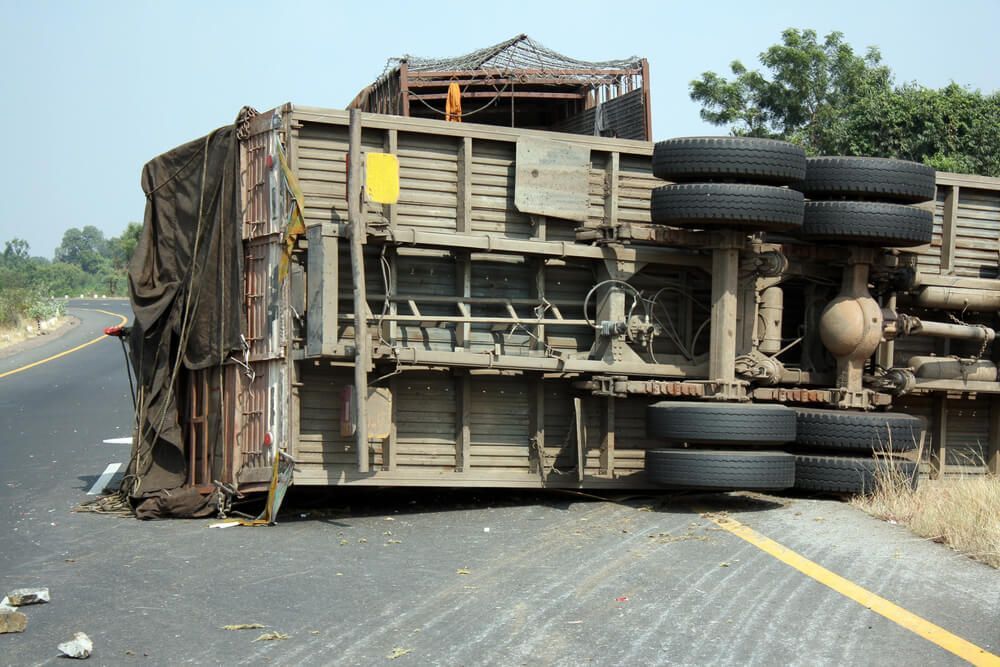What Is Considered a Catastrophic Injury?
Recent Blog Posts
What Is Considered a Catastrophic Injury?
After an accident, you may ask what is considered a catastrophic injury. Catastrophic injuries typically alter a victim's life physically, mentally, and emotionally, and their financial impact can be enormous. We want to explain catastrophic injuries in-depth and give examples of what they look like so that you understand them better.
What Is the Definition of Catastrophic Injury?

While there is no exact catastrophic injury definition, it is a physical or internal injury regarded as severe and potentially impacting a victim's daily life and the lives of their families. A catastrophic injury affects a person much more than a minor one.
Catastrophic injuries typically lead to lifelong consequences, including the need for extended medical care, medical devices, permanent in-home help, and more. A catastrophic injury can lead to significant physical and cognitive disabilities.
An injury that is not permanent can still be considered a catastrophic injury. These types of trauma can last for months or years, significantly affecting the victim's ability to function physically and emotionally. In some cases, the effects of a catastrophic injury appear much later.
Degrees of Severity
A car accident can cause a concussion. It can also cause severe traumatic brain injury. In both cases, the car accident is the cause; however, only one of these injuries could be considered catastrophic.
Defining a catastrophic injury involves looking at degrees of severity. The mechanisms that cause relatively minor to moderate injuries are the exact mechanisms that cause catastrophic injuries, so the degrees of severity matter.
What Are Catastrophic Injury Examples?
Catastrophic injuries are likely to affect every aspect of a person's life, including the ability to work and carry out typical day-to-day activities. Some common catastrophic injury examples include:
- Traumatic brain injuries
- Spinal cord trauma
- Internal organ damage or bleeding
- Amputations and crush injuries
- Severe infections
- Extensive burn injuries
This list is not a complete rundown of catastrophic injuries. Still, it gives an idea of the types of injuries classified as such and helps you understand the meaning of catastrophic injury.
Catastrophic injuries can affect many bodily systems, sometimes all at once. They include the central nervous system and the urinary, gastrointestinal, circulatory, excretory, respiratory, reproductive, and other systems.
Non-Catastrophic Injury Examples
Trauma that is non-catastrophic can still be severe. Moderate injuries often require medical treatment or even hospitalization. However, they do not have the long-term impact of catastrophic injuries. Non-catastrophic injuries may include:
- Bruises and cuts
- Whiplash or concussion
- Certain broken bones
- Puncture wounds
- Sprains and strains
More examples exist, but this list helps explain the main elements of a non-catastrophic injury. The victim does not have a substantial risk of permanent disfigurement, disability, or loss of bodily functions with a mild or moderate trauma.
Can You Secure Compensation for a Catastrophic Injury?

Catastrophic injury victims may recover compensation if another individual or entity's careless or negligent actions caused their injury. Like a traditional personal injury claim, recovering compensation in these scenarios can be challenging. The at-fault party or their attorney must prove that the other party's negligent actions caused the incident.
Securing compensation involves gathering evidence, negotiating with insurance carriers, and possibly filing a personal injury lawsuit in civil court. Getting legal advice from an experienced Phoenix personal injury attorney can help determine the best options to secure compensation for your injury case.
One aspect of catastrophic injuries that victims frequently overlook is the need for long-term compensation. These types of injuries often leave short- or long-term disabilities. If the final settlement or jury verdict does not account for these long-term expenses, the injury victim will suffer financially in the long run.
Say, for example, someone suffers trauma in a Phoenix pedestrian accident. According to the CDC, trauma to injured pedestrians led to $4.94 billion in medical expenses and $1.12 billion in work losses in 2021. Because catastrophic injuries can lead to staggering costs, getting compensation may be vital to covering expenses. When you work with a skilled catastrophic injury lawyer in Arizona, you will have an advocate ready to help you through the process.
Have Questions About What Is Considered a Catastrophic Injury? Call Sargon Law Group
If you think you have sustained catastrophic injuries due to another party's negligence, you may also have questions about what a catastrophic injury is. If so, we encourage you to reach out to a Sargon Law Group attorney as soon as possible for a free consultation.
Our Phoenix car accident attorneys know how a catastrophic injury can impact your life and work to secure maximum compensation for injured victims.





